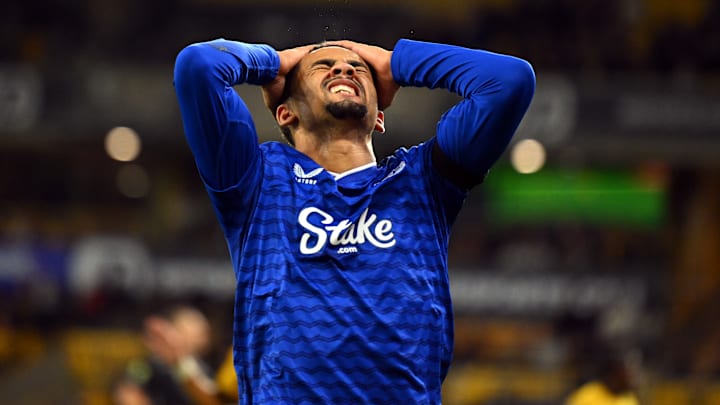Everton went into Tuesday night’s Carabao Cup tie against Wolves on the back of a league win over the same opponents a few weeks earlier, with hopes of building momentum and mounting a cup run that could potentially bring long-awaited silverware to the Blues.
However, David Moyes’ decision to make several changes from his usual starting XI, understandable given the congested fixture list, left the Toffees looking disjointed. A 2–0 defeat followed, with Marshall Munetsi and Tolu Arokodare scoring the goals that sent Premier League bottom side Wolves into the fourth round.
So, after a short-lived cup campaign, what lessons can Everton take from their exit?
Improvements to attack are needed
Toothless, lethargic, and ineffective — those were just some of the words used to describe Everton’s attacking display last night. Despite a summer of heavy investment in the forward line, with Thierno Barry, Tyler Dibling, Jack Grealish, and Charly Alcaraz all arriving, the Toffees still look short of firepower, particularly in the centre-forward role.
French striker Thierno Barry was handed 45 minutes to impress, but his two headed efforts failed to trouble the goalkeeper. Beto replaced him after the break and fared no better, continuing his frustrating run of form. While Barry can be excused to some extent due to limited minutes since his arrival, patience with Beto is wearing thin among supporters. The lack of goals and overall impact from the Portuguese forward has left fans questioning whether he is capable of leading the line.
Everton have scored eight goals this season with only two coming from the strikeforce.
Big changes, big disappointment
David Moyes made seven changes to his starting XI, and while rotation is understandable, many, ourselves included, felt it was two or three too many.
From the comfort of the sofa, it may seem easy to judge, but the reality is that players like Dwight McNeil, Tyler Dibling, and Seamus Coleman were thrown into the lineup with limited minutes under their belts and, in some cases, asked to operate out of position. The result was a team that lacked rhythm, cohesion, and sharpness from the outset.
It’s fair to say continuity would have served Everton better. Sticking with the same starting XI that lost to Liverpool might not have caused significant fatigue, particularly with the next fixture still six days away. Momentum is everything in football, and Moyes’ decision to shuffle the deck so heavily came at the cost of consistency and confidence.
Cup competitions are often about fine margins, and the Carabao Cup represented a real chance for Everton to build belief and push for silverware. By over-rotating, Moyes may have underestimated both the challenge posed by Wolves and the importance of sustaining a winning mentality. For a fanbase desperate for success, the selection gamble felt like a missed opportunity.
Premier League is priority
The Premier League is clearly the priority, a fact reflected both in Moyes’ team selection and in his post-match comments. Instead of dwelling on the disappointment of the Carabao Cup exit, he argued that Wolves were not the better side over the 90 minutes.
That may be true on balance of play, but Everton’s performance, particularly in attack, was flat, lacking the spark and cutting edge needed to make a difference in league fixtures.
